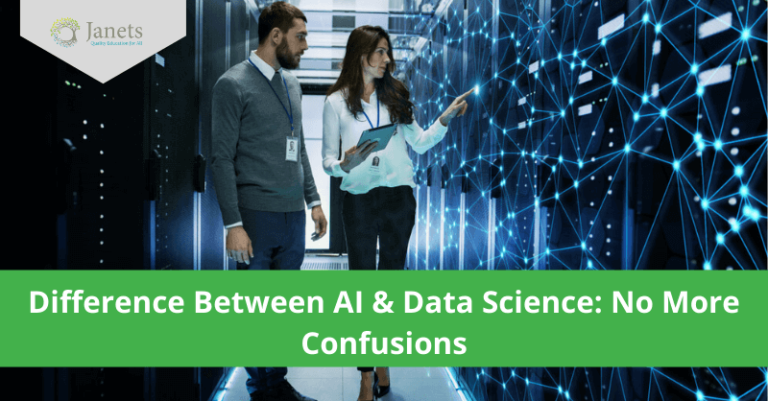Finding the difference between AI and data science can be confusing. The modern tech industry often throws the word data science and artificial intelligence together. Sometimes, we use both terms interchangeably. However, the two have their own separate discipline. While both are disciplines of computer science, they have significant differences.
Do you want to work in the tech industry? Then you might be looking into different parts of data analysis. And you want to determine which one appeals to you the most. We’ll assist you with your decision-making process in this post. Consequently, the article will discuss the difference between AI and data science.
What is Data Science?
Before learning the difference between AI and data science, let’s look at what data science is. Experts define data science as the field of study pertaining to data systems and processes. It aims to maintain data sets and derive meaningful patterns out of them. Data scientists make sense of random data clusters. They do it by using a combination of tools, applications, and algorithms.
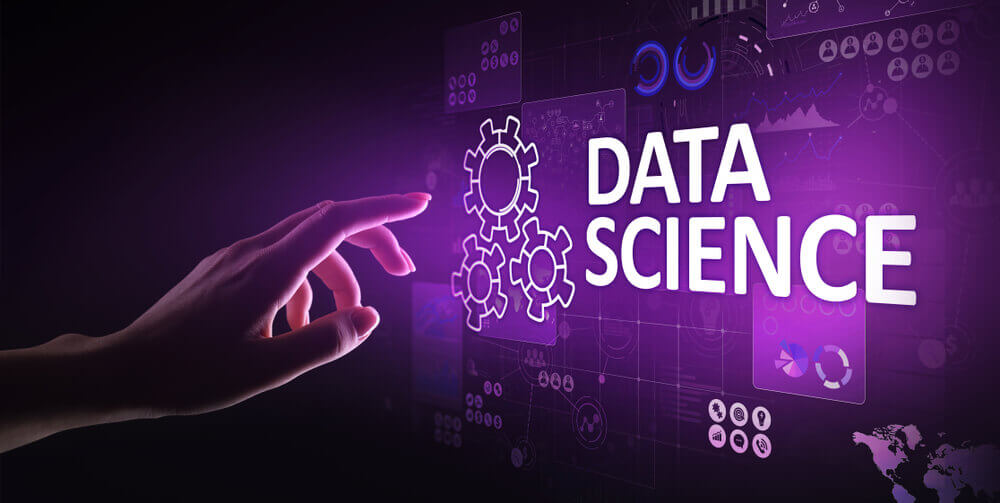
All kinds of organisations around the world are generating exponential amounts of data. Thus, it has become extremely difficult to store and monitor such a big amount of data. Focus shifts to data warehousing and data modelling in data science. And its purpose is to track the growing data set.
Consequently, to reach organisational goals, companies use the extracted information from data science. Moreover, it assists in guiding business processes.
Application of Data Science
The main responsibility of data scientists is to analyse data patterns. Also, they scrutinise data trends, among other things. And for that, data scientists have to deal with huge chunks of data. These analytic programs generate reports. Consequently, the reports can then be used to make judgments.

A Business Intelligence expert takes over from a data scientist later on. They do so by understanding data patterns in any business industry. Furthermore, they have to give business projections. Consequently, business analysts predict the course of action. The prediction is based on these inferences using data science reports.
Some applications of data science in different formats are as follows.
Predictive Analytics
Data scientists use this model to provide business projections. The predictive model displays the measurable results of various business operations. It can be a useful concept for companies. Furthermore, it assists in predicting the future of a new company venture.
Machine Learning to Predict Reports
Data scientists use machine learning algorithms to analyse transactional data. And it also helps create relevant predictions. Experts name this methodology supervised learning. And data scientists use it to recommend the most effective courses of action for any firm.
Machine Learning to Discover Pattern
Pattern identification is critical for businesses. It helps to define parameters in various data reports. And machine learning is one approach to accomplish it. It is essentially unsupervised learning. Consequently, no parameters have been set in advance for this.
Data scientists most often use clustering for pattern detection.
What is AI: Artificial Intelligence?
Modern culture associates artificial intelligence with a machine dominated world. And futuristic looking robots are what represents AI in the movies. However, the reality of artificial intelligence is far from that fictional concept.
The purpose of artificial intelligence is to enable machines to replicate human intelligence. Moreover, AI gives the power of reasoning to machines. It is done so to execute a task with utmost precision and accuracy.
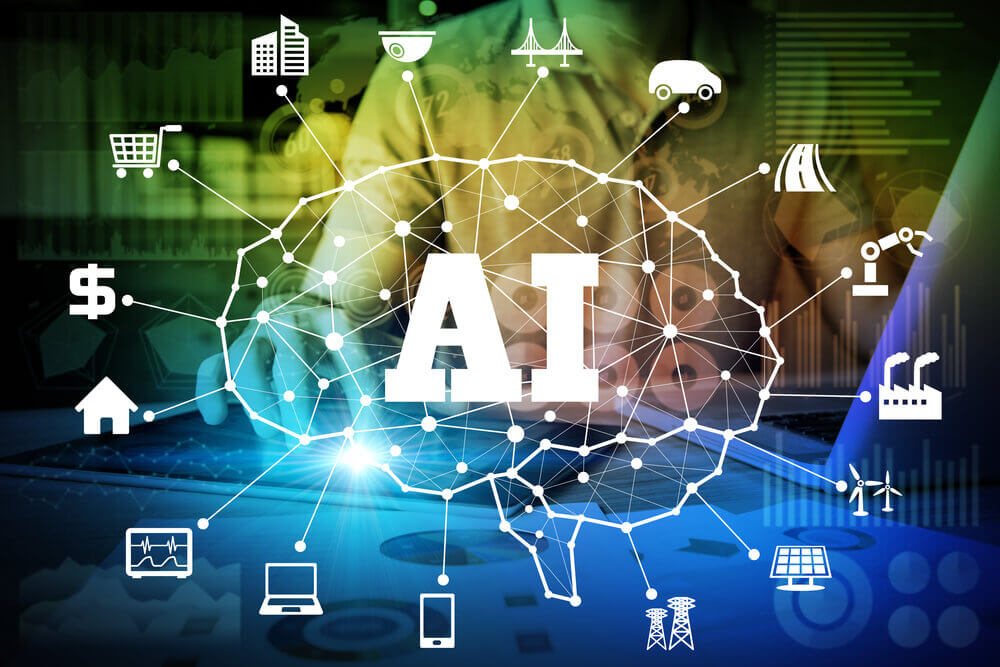
AI teaches machines from experience. It is one of the main purposes of Artificial intelligence. Consequently, feeding the right information is important. Moreover, learning how to self-correct is crucial for the successful development of AI. Consequently, to help machines identify patterns and inferences, experts rely on deep learning. And they also use natural language processing.
Applications of Artificial Intelligence
Learning, reasoning, and self-correction are the three main processes in Artificial Intelligence. Furthermore, scientists can use AI frameworks to compute deep neural network computations.

Before we move on to the difference between AI and data science, let us walk through the applications of AI. The application of AI technology can convert industrial processes. We can get much simpler and quicker outcomes using AI.
Easier Automation with Artificial Intelligence
AI allows you to automate high volume manufacturing processes in a repetitive manner. It can do so by setting up reliable systems to run frequent applications.
Smart Products
Artificial intelligence (AI) has the potential to transform everyday items into smart commodities. AI applications are sometimes combined with conversational platforms, bots, and other smart machines. You can achieve enhanced technology through this combination.
Advanced Learning
Machines can be trained to do any function using AI algorithms. Predictors and classifiers are built into the algorithms.
Data Analysis
Robots learn from the data we feed them. Thus, it is absolutely critical to analyse and discover the correct set of data. Data analysis is made easier using neural networking.
What is Machine Learning?
The ability to learn from experience is one of the hallmarks of intelligence. Let’s take a short look at what machine learning is before we move on to the difference between AI and data science. Machines can generate insights or predictions on new data. But they have to identify the pattern first. It is the fundamental principle of machine learning.

It relies on algorithms to encode and learn from good data models. Furthermore, the model is used for a variety of applications. Machine learning helps classify data into categories. Moreover, it assists in predicting data value. However, it needs the help of previously identified data patterns. The idea of classification, regression and clustering are core concepts of machine learning.
Data scientists introduce a wide range of machine learning algorithms. It helps execute tasks across data sets. The algorithms are typically run and built by data scientists. The list of algorithms includes support vectors and decision trees. Furthermore, it also includes logistic regression and linear regression, among others.
Key Difference between AI & Data Science
Two most important technology of today’s world is data science and artificial intelligence. So, what is the difference between AI and data science? In some operations of data science, the concept of AI helps to find simpler solutions.
Experts frequently use artificial intelligence and data science together. However, there are distinct differences between AI and data science.

Let’s look at the key difference between AI and data science to air out any confusion you might have.
- The process of data science is comprehensive. You have to pre-process, analyse, visualise and predict the data. In contrast, artificial intelligence assists in implementing a predictive model. The predictive model can forecast future events.
- Data science consists of statistical techniques. In comparison, artificial intelligence executes operations with the help of computer algorithms.
- Data science uses a higher number of complex tools than artificial intelligence. Consequently, data science follows through multiples steps to analyse data. Moreover, generating insights with accuracy and precision is one of the wonders of data science.
- Artificial intelligence provides autonomy to the data model. And data science assists in finding any hidden pattern in the data.
- Data science is mainly used to build models for statistical insights. In contrast, artificial intelligence is used to build models that mimic cognition. And it can also mirror human understanding.
- Artificial intelligence requires a high degree of scientific processing. In contrast, data science does not need high-level scientific processing.
- Complex models for extracting diverse information can be constructed utilising data science. Moreover, it helps develop insights and statistical approaches. Artificial intelligence, on the other hand, is used to create models.
The models, to some extent, mimic cognition and human understanding. Consequently, the goal of imitating cognition is to achieve self-sufficiency. It means the machine will no longer require human input.
The Field of Difference between AI and Data Science
As we have already discussed, the unique purposes AI and data science serve in today’s world. Although AI and data science are interconnected, the fields of difference between AI and data science are huge.
Scope
Artificial intelligence assists in the implementation of machine learning algorithms. Consequently, various underlying operations of data is involved in data science.
Data Type
The data contained in artificial intelligence is standardised. The artificial intelligence data type is in the form of vectors and remains embedded. In contrast, there are various data types in data science. It includes structured, unstructured, and semi-structured data.
Tools Type
Primary tools used in data science are SPSS and SAS. Also, scientists prefer to use Python and R programming, among others. Consequently, AI scientists use several tools in artificial intelligence. It includes Shogun, PyTorch, Mahout, etc.

Varied Applications
There are many fields where data science is applied. It includes internet search engines like Google, Yahoo, and Bing. The application of data science is manifold. Furthermore, it is applied in the fields of marketing, banking.

In contrast, artificial intelligence is mainly used in the transportation industry. Moreover, automation industry, healthcare industry, and robotics industry also use AI.
Purpose
The intent and purpose is the main difference between AI and data science. AI intends to automate the process of data collection and modelling. And data science intends to find the sets of patterns in any data and make sense of it.
Constraints of Artificial Intelligence & Data Science
Today’s AI is actually “Artificial Narrow Intelligence”. Computer systems do not have complete autonomy under this system. And it lacks human consciousness to execute operations. Rather, the system can only execute tasks that experts program it for.
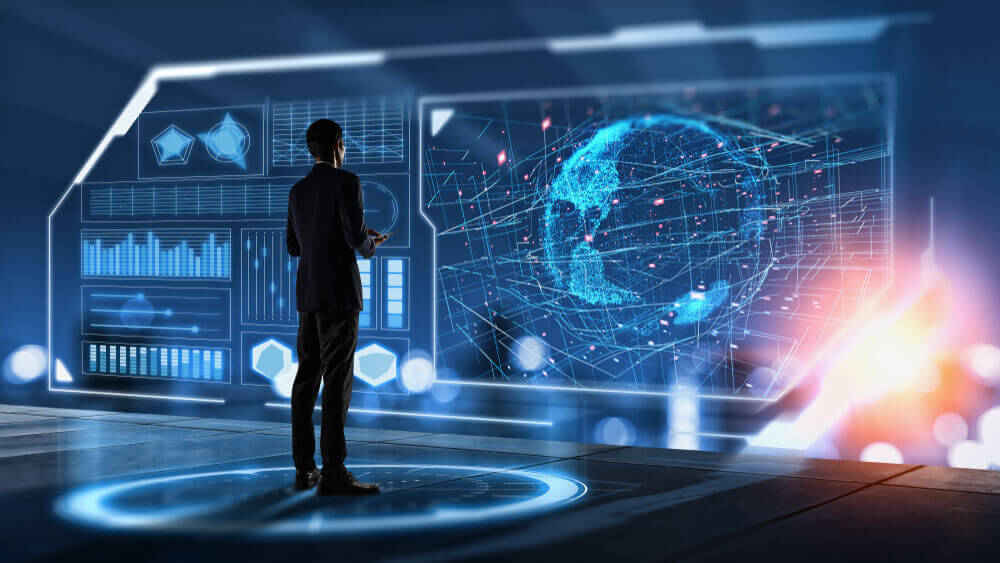
Conversely, a data scientist is solely responsible for the study and analysis of data in data science. Thus, a data scientist has to be knowledgeable on the subject. Otherwise, the data won’t be beneficial in the growth and progress of the company.
The difference between AI and data science is manifold. However, both programs need human intelligence to maintain their accuracy. Lack of independence is one of the main constraints. It is an issue for both artificial intelligence and data science.
Consequently, artificial intelligence is one of the processes data scientists use. It assists in getting a clearer prediction of data. For example, AI tools such as deep learning algorithms help data scientists to perform rigorous classification.
Combination of AI, Data Science, and Machine learning
We have covered the difference between AI and data science. So, let us discuss what the combination of AI, data science, and machine learning has to offer us. The value of data science in the business sector is incomparable. Machine learning, when combined with data science, adds further value to it.
The pool of data is ever-growing. And when data science and machine learning are used together, they can generate valuable insights.
Consequently, there are issues we face with the application of general Artificial Intelligence. However, the combination of data science and machine learning may ultimately solve it. You can apply the combination of data science, machine learning, and AI to great effects. Some common ways are as followed.
Conversational AI System
Organisations use AI systems as tools to create highly interactive platforms. With its assistance, machines or software can communicate with customers. In addition, patients and other individuals can get the care they want.
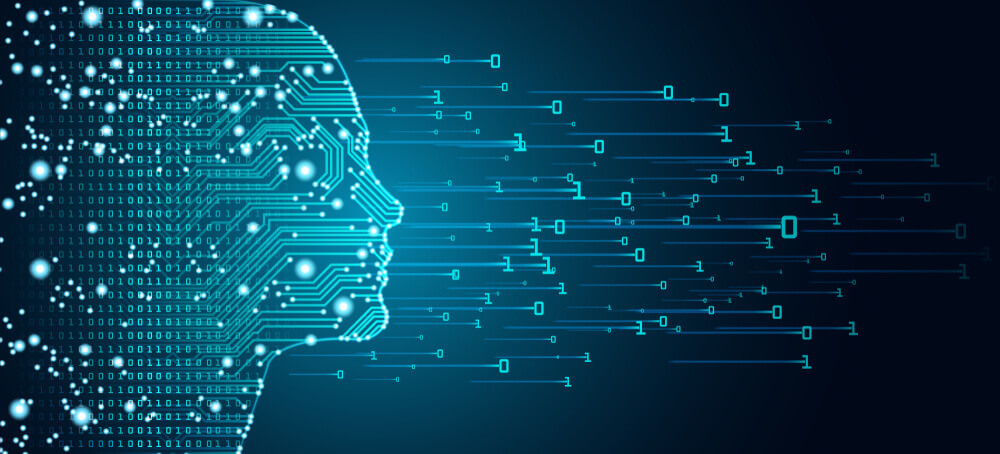
Consequently, data science is used to keep track of queries and concerns. It further enables machines to recognise the pattern of data. And then it provides prompt response.
Detection System for Anomaly
Organisations are able to quickly respond to growing cybersecurity threats. The power trio helps in this case. Subsequently, the anomaly detection system underpins adaptive cybersecurity. Consequently, it helps in the detection of fraud cases.
The System can be Hyper Personalised
Data science, AI, and machine learning all together enable the system of personalised and targeted ads. Consequently, financial guidance and medical care can be offered to users. As a result, user interface platforms become highly interactive.
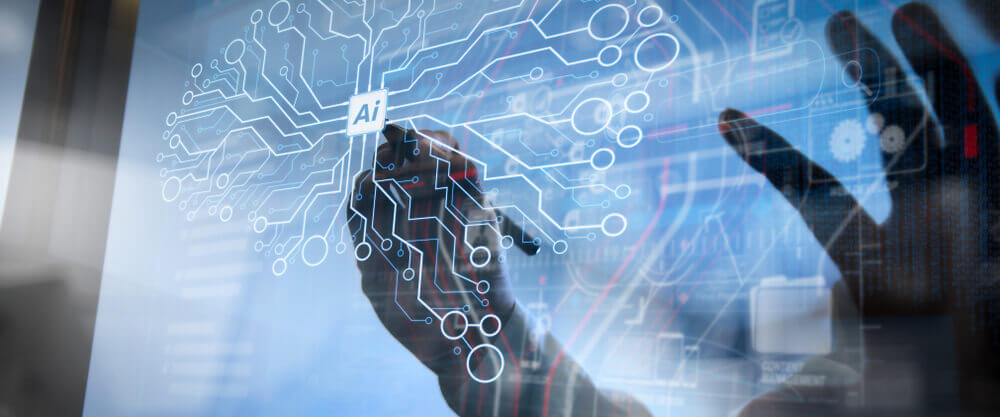
Product recommendations and other personal offerings are made possible. It happens with the assistance of the power trio.
The concept of data science, machine learning, and artificial intelligence separately are powerful. And they are capable of unique innovations. However, organisations and businesses can transform their operation by using them together.
How to Become a Data Scientist or an AI Engineer?
Now that we know the difference between AI and data science, let’s talk about how to actually get into the field. To pursue a career in data science, you will need a strong foundation in maths and physics. Moreover, some basic knowledge of computer science is necessary. Consequently, these subjects will put you in a fantastic position.

It’s also helpful to have a rudimentary understanding of linear algebra and calculus. Consequently, you should have good knowledge of probability and statistics. Because machine learning techniques differ from those used in traditional programming.
Subsequently, programming is especially crucial in artificial intelligence. AI engineers will continue to be in great demand across a variety of industries. The industries include technology, financial services, government, and consulting. And we have discussed the reasons behind the increasing demand.
Are you really interested in a career in data science or artificial intelligence? Then Janets’s unique online courses are a terrific place to start. You can enrol in our on-demand live classes for advanced certification in Data Science and AI. The accredited course combines an in-depth curriculum with personal mentorship. And you get the bonus of career coaching.
Consequently, the course will put you in the job market sooner than you think. Alternatively, you might want a more flexible schedule. Our course Data Science and Machine Learning using Python: A Bootcamp will get you there at your own pace.
How Much do Data Scientists and Artificial Intelligence Engineers Make in the UK?
So, you now know what the difference is between AI and data science. Now, for the most exciting part! How much do data scientists and AI engineers make?

A data scientist’s average annual compensation, according to Glassdoor, is around £80,000 per year. Companies that are willing to pay these high wages understand the value of big data. And they are ready to use it to improve business choices.
In this expanding industry, even starting pay is becoming more appealing. An entry-level data scientist can make up to £52,000 per year. Consequently, expert data scientists can make more than that. Similarly, an artificial intelligence engineer’s typical annual compensation is much over $100,000. In the United Kingdom, the average national wage is £74,292, with a low of £22,500 and a high of £171,166.
Final Word
Difference between AI and data science are many. However, both hold power to revolutionise our tech industry. Data science is making a big difference in today’s market. However, scientists have yet to explore a big aspect of artificial intelligence. And they are yet to apply AI in the practical world. Data transformation is possible with the help of data science. Meanwhile, artificial intelligence helps businesses bring more user-friendly products to the market.





 LOGIN/Sign up
LOGIN/Sign up
